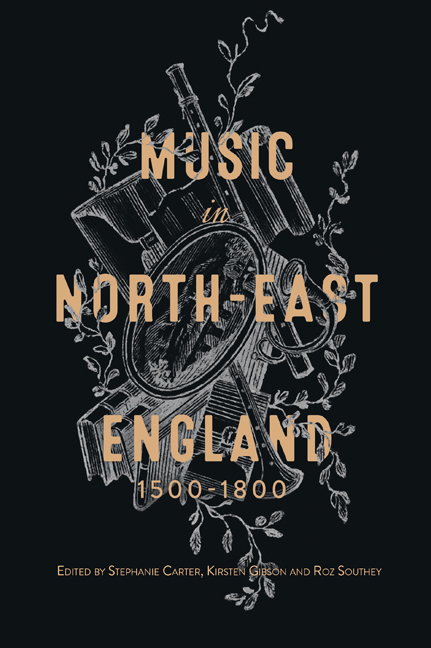5 - ‘I esteem my lot fortunate, in residing in this happy country’: Edward Miller, Social Networking and Music-Making in Eighteenth-Century Doncaster
Published online by Cambridge University Press: 17 November 2020
Summary
Edward Miller (1735–1807; Figure 5.1) is an excellent case study to demonstrate how a northern musician developed a successful career. Three of his surviving musical works (which are listed in Table 5.1 at the end of this chapter) were published by subscription: A Collection of New English Songs and a Cantata ([1756]); Elegies, Songs, and an Ode of Mr. Pope’s, with Instrumental Parts, Op.3 ([c.1770]); and The Psalms of David, for the Use of Parish Churches (1790). An examination of the subscription lists of these publications reveals how, through his entrepreneurial skills, social circles and networking, Miller was able to successfully develop a national profile, gain royal patronage and secure over 2,000 subscribers to his Psalms of David, a ten-fold increase on the number who subscribed to his earlier works. This chapter examines the ways in which Miller successfully combined commercial enterprise and patronage and builds a picture of his network of contacts, which included many musical celebrities, including Charles Burney, William Boyce (Master of the King's Music), George Frideric Handel, James Nares (organist of the Chapel Royal), Philip Hayes and Wilhelm Cramer. The study of networks informs our understanding of the creation, circulation and reception of music and our interpretation of music activities, in which detailed narratives are limited by the unpredictable and incomplete survival of documentary sources. Miller's network ranged from local contacts in Yorkshire towns and cities to regular interactions with and connections in London, but as a regional musician he was by no means unusual. Establishing this network enabled Miller to advance his music career and influenced concert life in eighteenth-century Doncaster and the wider region.
Many regional musicians struggled to earn a sustainable living from their salaried posts alone and had to exploit a range of income streams. Miller pursued both musical and non-musical activities, combining the income received from his musical appointments, school and private teaching, concert performances and publications with that earned from farming and buying and selling property. Writing at the height of his career in 1792, he reflected:
I esteem my lot fortunate, in residing in this happy country – The seat of liberty, of commerce, and of the fine arts – as a literary man, I respect the sciences; and, far from attempting to degrade the character of an artist, am thankful for the instruction, or pleasure I receive, from the exertion of his talents.
- Type
- Chapter
- Information
- Music in North-East England, 1500–1800 , pp. 89 - 108Publisher: Boydell & BrewerPrint publication year: 2020



